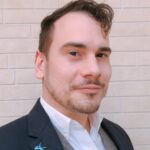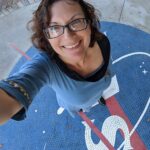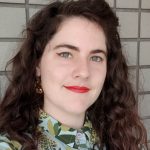- Status: Active
- Location: Global
- Orgs Involved: NASA, NASA KSC, North Dakota Space Grant Consortium
- Program Lead: Gil Cauthorn
- Focus Area: Astrobotany Education, Citizen Science
- Dates: 2021 – Present
- Goal: To engage citizen scientists in authentic astrobiology research that supports ongoing research at space agencies and research orgs around the world.
Summary
The Astrobotany International Research Initiative (AIRI) is an open source astrobotany research platform that seeks to support ongoing space plant biology research through an interactive, collaborative space. AIRI aims to engage researchers, academics, citizen scientists, university students, and K-12 educators and students in authentic astrobiology research that is aligned with, and supports, ongoing astrobotany research at space agencies and research organizations around the world. This program has been developed in collaboration with postdoctoral researchers at NASA Kennedy Space, and the University of Madison Wisconsin’s Gilroy Lab.
The experimental data provided through the AIRI program is meant to be open-source in order to support current ongoing astrobotany research and education.
If you have questions or comments about AIRI, please feel free to contact us. We welcome your feedback about how we can make AIRI accessible and easy to use!
AIRI Program Navigation
AIRI Team
 Gil Cauthorn is a Ph.D student at the University of North Dakota’s Department of Space Studies, and holds a master’s of science degree in biology from Clemson University. He is an experimental researcher and co-investigator with Magnitude.io; currently researching specialized interactions between nitrogen fixing bacteria and plants in microgravity aboard the ISS. Gil is an astrobotany experimental research program coordinator and an international baccalaureate Biology teacher in Osaka, Japan. He is also part of the site team at astrobotany.com.
Gil Cauthorn is a Ph.D student at the University of North Dakota’s Department of Space Studies, and holds a master’s of science degree in biology from Clemson University. He is an experimental researcher and co-investigator with Magnitude.io; currently researching specialized interactions between nitrogen fixing bacteria and plants in microgravity aboard the ISS. Gil is an astrobotany experimental research program coordinator and an international baccalaureate Biology teacher in Osaka, Japan. He is also part of the site team at astrobotany.com.
 Dr. Richard Barker is a UW-Madison research Scientist in the Gilroy AstroBiology lab. He is a veteran of multiple previous spaceflight missions including TOAST2, TICTOC and APEX05. He currently is a Co-Investigator on three NASA grants and has been involved in the planning and launch of multiple AstroBotany experiments to the International Space Station (ISS). As part of the NASA GeneLab project, he developed the TOAST informatics system with the goal of increasing access to space life science data. He is committed to sharing research protocol and the latest NASA GeneLab Astrobotany life science data through publications and the websites he manages.
Dr. Richard Barker is a UW-Madison research Scientist in the Gilroy AstroBiology lab. He is a veteran of multiple previous spaceflight missions including TOAST2, TICTOC and APEX05. He currently is a Co-Investigator on three NASA grants and has been involved in the planning and launch of multiple AstroBotany experiments to the International Space Station (ISS). As part of the NASA GeneLab project, he developed the TOAST informatics system with the goal of increasing access to space life science data. He is committed to sharing research protocol and the latest NASA GeneLab Astrobotany life science data through publications and the websites he manages.
 Christina Johnson is currently a fellow with the NASA Postdoctoral Program who is working with the Space Crop Production and Microgravity Simulation Support Facility at Kennedy Space Center. In a collaboration with scientists at the USDA, Christina is developing microgreens as a candidate crop for spaceflight. She completed her PhD in Botany in 2017 at Miami University, Ohio, and prior to that completed a BS in Genetics and Plant Biology at the University of California, Berkeley. Christina is especially delighted to participate in the Astrobotany International Research Initiative because when she’s not developing crops for spaceflight, she enjoys putting together resources to help children better understand science and math.
Christina Johnson is currently a fellow with the NASA Postdoctoral Program who is working with the Space Crop Production and Microgravity Simulation Support Facility at Kennedy Space Center. In a collaboration with scientists at the USDA, Christina is developing microgreens as a candidate crop for spaceflight. She completed her PhD in Botany in 2017 at Miami University, Ohio, and prior to that completed a BS in Genetics and Plant Biology at the University of California, Berkeley. Christina is especially delighted to participate in the Astrobotany International Research Initiative because when she’s not developing crops for spaceflight, she enjoys putting together resources to help children better understand science and math.
 As part of NASA IV&V’s Education Resource Center, Emily plans and conducts educator trainings around science content, digital tools for teaching, and coding with Scratch. A former classroom teacher who has taught special education and science in grades K-12, she is interested in making science engaging and accessible for all through open education resources (OER) and practices (OEP).
As part of NASA IV&V’s Education Resource Center, Emily plans and conducts educator trainings around science content, digital tools for teaching, and coding with Scratch. A former classroom teacher who has taught special education and science in grades K-12, she is interested in making science engaging and accessible for all through open education resources (OER) and practices (OEP).
 Sophia is a Chemistry and Science teacher from Australia. She holds a Masters of Teaching from the University of Melbourne. She worked in the Victorian school system teaching grade 7~12 for 5 years and is currently in a position teaching international baccalaureate diploma program Chemistry at a school in Osaka, Japan. She is a curriculum specialist and is acting as an Educational Programs and Outreach Consultant for AIRI.
Sophia is a Chemistry and Science teacher from Australia. She holds a Masters of Teaching from the University of Melbourne. She worked in the Victorian school system teaching grade 7~12 for 5 years and is currently in a position teaching international baccalaureate diploma program Chemistry at a school in Osaka, Japan. She is a curriculum specialist and is acting as an Educational Programs and Outreach Consultant for AIRI.


